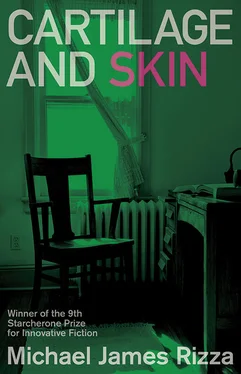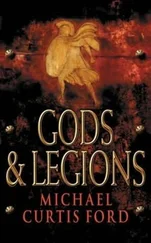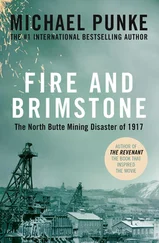When I woke up, I felt rejuvenated, and though the bleak weather continued, I was certain that it was morning. I didn’t immediately consider my encounter with Claudia Jones — not until I stepped barefooted on the chilly white tile in the bathroom and began to urinate; then, all at once, I was struck by the weight of the episode. I was a grotesque absurdity, a lumbering monstrosity who attempted to function smoothly in society — and now my disguise had been torn from me, the brown sack pulled off my horny, bulbous head, by the simple gesture of knocking on a stranger’s door in desperation. Yet a part of me knew that life required risk, a person must put himself on the forefront and leave himself vulnerable; this was the essential factor to all relationships. To a faint degree, I felt excited and engaged — but even so, to a larger degree, I was mortified. I didn’t understand enough about people to trust that they usually expect another person to be slightly goofy, weak, and flawed. This tender spot, this openness, connects friends, family, and lovers, and enables them to say that they truly know or love someone else. While I urinated, however, I assumed that the real Claudia Jones thought I was a nut, and I surely gave myself too much credit — in all likelihood, I was no more than a passing thought in that woman’s mind, or if she did think of me, it wasn’t with the violence and vehemence that I imagined.
Nevertheless, a barrier had been crossed, and though I stumbled awkwardly forward, there was no reason to retreat now. I planned to knock on her door again.
III
The possibility of the unknown motivated me to clean myself up and leave my apartment. In my charcoal overcoat, and with a paperback novel tucked in the side pocket, I picked up my umbrella and headed down the hall. I walked past Claudia’s door without giving it any notice. Mail was piled on the landing, but I didn’t bother with it; nor did I check my own mailbox, though I was waiting for Morris the sister’s reply. I descended the cement stairs, where once the boy had sat and waited for me. The air was cool and wet, but I kept my umbrella closed, since it could do nothing against a fine mist. Although I had no definite location in mind, I wanted to go some place where people gathered, such as Market or Broad Street, and milled about in front of stores. The weather apparently dissuaded most pedestrians, and the few that ventured out moved slowly and silently, bundled up, with their faces turned downward. I tried to look at everyone. I imagined that a hint of something composed and dignified colored my expression. Yet luckily no one returned my gaze, for the person would’ve seen — not the cultured man, the refined intellectual who brimmed with social graces and little knowing grins — but rather some eager-eyed, hysterical loon. There was nothing charming about me at all. Despite my self-deception, or perhaps because of it, I felt determined. I was uncertain what I was searching for, but I was going out to find it or maybe to let it find me. Fortunately for the world, it was spared of me for a while longer because the mist began to dampen me too, weighing me down. I came to the corner and paused. The crossroad seemed barren in both directions, with nothing inviting me forward. When I looked back down the direction I’d just come from, I saw a few people on either side of the road, walking close to the buildings in an attempt to stay dry. One figure, however, didn’t move at all. He simply stood under the stone arch of a doorway, at a distance too far for me to distinguish his features. He was wearing a dark green baseball cap and a corduroy jacket that came down to his knees. He faced the road, as if waiting for a ride to pull up or for something else to happen. I didn’t remember passing him, so he must have been walking behind me and only recently stopped for shelter. I noticed this all in a glance, but it didn’t hold my interest because in the same sweep of my eyes, I discovered a bus stop beside me. I stepped inside the thing, which offered poor protection from the weather. If a bus came, I was ready to get on it and let that movable contraption take me wherever it would. I would let chance have her way with me. Yet, while I stood there, I felt a pressure inside my chest, and I knew the sensation; it always forewarned me of a terrible wave of sadness. The pressure would get thicker, with a dull, steady squeeze. Despite the chilly air, I could already feel the perspiration beneath my collar and the heaviness in my head. There was nothing the matter with me, I told myself, just a general fatigue of the soul. After all, on the very day I’d gone out to encounter the world, “to force the moment to its crisis,” there was no moment to be found. I felt concealed in the bus stop because the three glass walls were covered completely over with bulletins, most of which posted by college students looking for roommates, trying to sell used books, or announcing a silly event. The walls seemed to bear testimony to life, if for no other reason than the freedom and nonchalance with which these people displayed their phone numbers. A bright pink sheet stated “Female Models Wanted,” specified the desired dimensions, and provided a row of tabs to be torn off; if a model wanted to call the artist, she needed to “ask for fred,” as the bulletin informed. Two tabs were already taken. Was it that easy? Could I simply plaster my number on a wall? I plucked a pink tab from the sheet and slipped it into my pocket beside the paperback book. I didn’t know why I took fred’s number, but it calmed my nerves a little. Then I noticed something on the wall that actually interested me. That coming Saturday, on the second floor of one of the poorman’s galleries, a doctor Barnett — a gentleman to whom I’d actually nodded once or twice in the hallway, a little, graying, wizened thing who always wore a brown felt hat — was giving a free lecture. Of course, it was the kind of lecture that offered wine and crackers to bribe people to come, and those who showed up undoubtedly would be the doctor’s own pliable, obsequious, sycophantic graduate students; the old Bohemian dilettantes who wore scarves and frequented all the coffee shops, galleries, and poetry readings; and the true scholar or two, just to make an appearance and nod approvingly at Dr. Barnett. I knew nothing of the man’s training or background, but his lecture had an appealing title: “Iago as Id.” Unfortunately, the bulletin probably had been made and posted by one of the doctor’s hopeful protégés, who’d neglected to put tabs on the bottom, so I had to remember the date and location, in case I decided to attend. Inspired by the bus stop walls, I stepped back out into the mist and continued walking. Although I hadn’t drank alcohol in a long time — simply because there were several periods in my life when it unfailingly exacerbated the very problems I’d wanted it to help me escape — I headed for one of the local pubs. A beer wouldn’t hurt me, and I could’ve used a plate of french fries. Occasionally, cars crawled by, their tires hissing on the wet pavement. The only vehicle that caught my attention, however, erupted loud and violent upon the somber scene. A motorcycle sped down the center of the road; the rider was a helmet-less black man, with hair as seemingly round and solid as a ridiculously oversized helmet. The front tire skimmed and skipped across the surface of the road, in perfect time with his gunning of the throttle. At first, I had an impression that the man had a maniacal appearance, with glaring white eyes and teeth protruding from a face as otherwise broad, black, and expressionless as a balloon. Then, after he disappeared and the sound of his bike faded, I realized something even more disturbing about the man; I had seen him all wrong. He was in fact as calm and sober as some stuffy, contemplative Englishman. This man, perhaps, was the real Dr. Barnett. Rather than question my initial racist impulse, I marveled at his mixture of repose and insane bravado, at once civilized and brutishly free. I became a witness to the grand endeavor of the Enlightened, western white man insouciantly epitomized by a man and a machine. I felt a wave of intimidation and realized that I was more closely aligned to James Baldwin’s oppressor than I ever suspected. I felt a bit overwhelmed, something close to mute awe, as I began to consider the possibility of violence and sexuality getting all mixed together when the body isn’t allowed a regular discharge, when the history of convention and custom, of edifice and enterprise, is erected, from tea cups to towers, in a revulsion to cartilage and skin, to juice and joussiance, and manifests itself in our desire to powder our white wigs, brush up on our book of manners, and spread our nobility into the heart of darkness, to plunder with Christ on our lips and civilize with swords in our hands, or, as in bald, black Baldwinian terms, to lynch and castrate on Saturday night, go to church on Sunday morning, and by midweek once again feel ashamed by our own pale flaccidity.
Читать дальше












